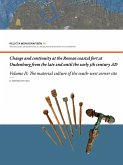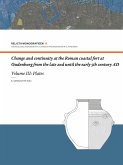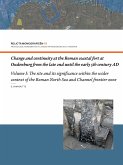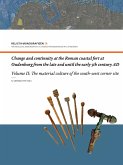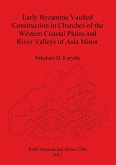Bringing together major archaeological research projects from Virginia to Alabama, this volume explores the rich prehistory of the Southeastern Coastal Plain. Contributors consider how the region's warm weather, abundant water, and geography have long been optimal for the habitation of people beginning 50,000 years ago. They highlight demographic changes and cultural connections across this wide span of time and space. New data are provided here for many sites, including evidence for human settlement before the Clovis period at the famous Topper site in South Carolina. Contributors track the progression of sea level rise that gradually submerged shorelines and landscapes, and they discuss the possibility of a comet collision that triggered the Younger Dryas cold reversion and contributed to the extinction of Pleistocene megafauna like mastodons and mammoths. Essays also examine the various stone materials used by prehistoric foragers, the location of chert quarries, and the details stone tools reveal about social interaction and mobility. This volume synthesizes more than fifty years of research and addresses many of today's controversial questions in the archaeology of the early Southeast, such as the sudden demise of the Clovis technoculture and the recognition of the mysterious "Middle Paleoindian" period. Contributors: Robert J. Austin Mark J. Brooks Christopher R. Moore I Randolph Daniel Joseph E. Wilkinson Joseph Schuldenrein Allen West David K. Thulman James K. Feathers Terry E. Barbour II Douglas Sain Thomas A. Jennings Albert C. Goodyear Andrew H. Ivester Malcolm A. LeCompte Adam M. Burke James S. Dunbar Jon Endonino Richard Estabrook H. Blaine Ensor Victor Adedeji Douglas J. Kennett Ashley M. Smallwood Kara Bridgman Sweeney Sam Upchurch James P. Kennett Wendy S. Wolbach M. Scott Harris Ted Bunch David G. Anderson C. Andrew Hemmings James. M. Adovasio
Hinweis: Dieser Artikel kann nur an eine deutsche Lieferadresse ausgeliefert werden.
Hinweis: Dieser Artikel kann nur an eine deutsche Lieferadresse ausgeliefert werden.




